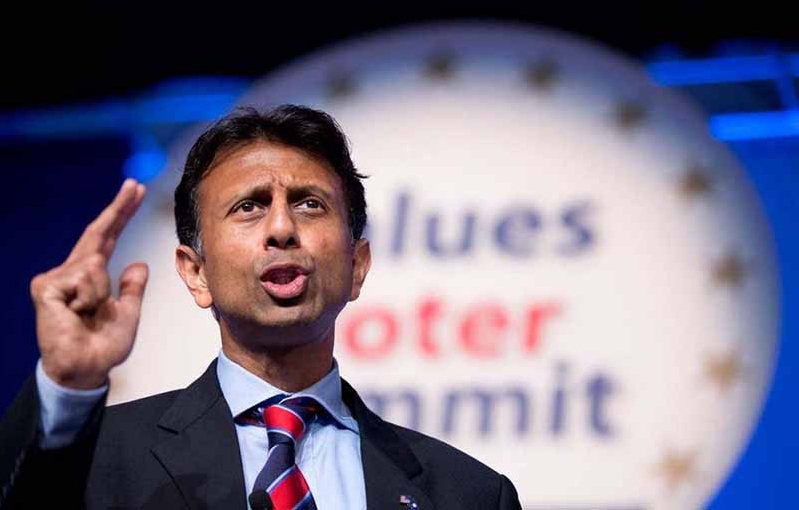
Louisiana Gov. Bobby Jindal talked on Sunday about how Christian businesses faced discrimination in Indiana thanks to the debate surrounding the state's "religious freedom" law. He also talked about rights relevant to the LGBT community.
The potential 2016 Republican presidential candidate made his comments in an interview conducted by Chuck Todd of NBC's "Meet the Press." According to Dale Armbruster of NBC News, Jindal believed that businesses should have the right to refuse to provide services based on the owner's religious beliefs, particularly in the realm of same-sex marriages.
"We're not talking about day-to-day routine commercial transactions," Jindal said. "We're talking about a very specific example here of business owners, of florists, of musicians, of caterers who are being forced to either pay thousands of dollars or close their businesses if they don't want to participate in a wedding ceremony that contradicts their religious beliefs."
Jindal added that "part of the First Amendment means that we allow individuals to obey their conscience, to obey their religious beliefs."
The governor then told Todd that he would need to see the legislation first in regards to a Louisiana bill that could allow employers to deny benefits to employees in a same-sex marriage. However, he argued that religious liberty can be defended without endorsing discrimination.
"I don't think those two values are mutually exclusive, and I think that's what this debate has been really about," Jindal said. "I think we can have religious liberty without having discrimination. I think it's possible to have both."
According to Amanda Terkel of the Huffington Post, the governor expressed discomfort at providing anti-discrimination protections for individuals who identified as lesbian, gay, bisexual or transgender. Todd asked Jindal on whether or not he supported local ordinances that prohibited such discrimination against the LGBT community in terms of housing and employment.
"I don't think, certainly, that there should be discrimination against anybody in housing and employment. That's not what my faith teaches me," Jindal said. "I don't think that's appropriate, and I think the good news is that our society is moving in a direction of more tolerance."
However, Terkel reported that Jindal was concerned about the effect of creating "special legal protections" for the LGBT community.
"My concern about creating special legal protections is that historically, our country, we've only done that in extraordinary circumstances, and it's not evident to me," Jindal said. "It doesn't appear to be one of those moments today."
Jindal told Todd that American society had to be "very careful about creating special rights."
"I think there are many that turn to the heavy hand of government to solve society's problems too easily," Jindal said. "I think, instead, we need to be working with people on their hearts and minds. I have faith and confidence in the people of America, the people of New Orleans, the people of Louisiana to not tolerate discrimination, to not support businesses that want to support discrimination."







